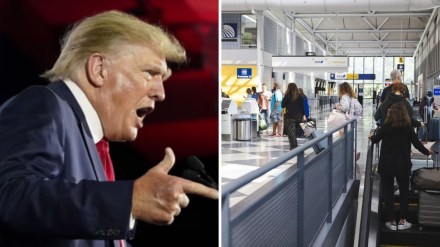As the US federal government heads toward a potential shutdown, thousands of federal workers could be furloughed, and some services might be disrupted. Not all government programs will come to a halt. Essential operations, such as law enforcement, airport security, and federal benefits, will continue, but travel and certain services, including inspections at chemical factories, power plants, oil refineries, and water treatment plants, may be affected. Here’s a detailed look at what could stay open and what may close.
Federal benefits likely to continue during gov shutdown
Social Security
Social Security is considered mandatory, so payments will continue without interruption during a shutdown, according to The New York Times.
Medicare and Medicaid
Medicare benefits continue as usual. Medicaid has funding to cover the first quarter of the next fiscal year, according to the Centres for Medicare and Medicaid Services. However, some services like issuing replacement Medicare cards could be delayed.
Supplemental Nutrition Assistance Program (SNAP)
SNAP provides food benefits to roughly 42 million people. It is not expected to stop immediately, but long shutdowns could affect payments later in the year. The Agriculture Department, which manages SNAP, says it has contingency plans for critical services, though exact funding details were not provided.
Veterans Benefits
Veterans will continue receiving medical care and pension payments. Certain programs, such as career counselling within the Department of Veterans Affairs, might be paused.
Programs that could be paused
WIC Program
The Special Supplemental Nutrition Program for Women, Infants, and Children (WIC) might not accept new applicants starting October 1 if the shutdown continues.
Environmental Inspections
Past government shutdowns show that inspections of chemical plants, oil refineries, power plants, and water treatment facilities can be disrupted. Most EPA employees handling pollution monitoring are furloughed during a shutdown.
Small Business Administration (SBA) Loans
SBA may continue delivering disaster preparedness loans, but most other small business loan approvals are likely to stop.
Head Start Programs
Most Head Start programs will continue. Only eight out of roughly 1,600 programs, serving about 7,500 children, may see immediate funding gaps because their fiscal year starts in October. Extended shutdowns could affect many more programs by November.
Tommy Sheridan, the deputy director of the National Head Start Association, in a statement to the NY Times, said, “We have reached out to them and so far all the ones we’ve heard back believe they will be able to stay open for a period of time.” He continued, “If a shutdown stretches longer, though, especially into November, then a lot more programs would be impacted and some would likely have to close.”
Airports and travel
TSA Operations
According to ABC News, TSA officers will continue working without pay. About 58,488 TSA workers out of 61,475 are expected to remain on duty. In past shutdowns, some officers failed to show up due to financial hardship, leading to long lines at airports.
Air Traffic Controllers
More than 13,000 controllers will continue working without pay. Training for new controllers will continue using prior-year funds. During the 2018-2019 shutdown, some safety checks and proactive measures were paused, which led to temporary flight halts and delays.
Flights and Airlines
Commercial flights will operate normally, as airline staff are not part of the federal shutdown.
Train Travel
Amtrak trains will continue running across the country, including the Northeast Corridor.”Passengers planning to travel on Amtrak trains in the Northeast Corridor and across the country in the coming days and weeks can be assured that Amtrak will remain open for business,” Amtrak told ABC.
Mail and postal services
The US Postal Service will continue delivering mail, and all post offices will remain open. USPS operates on its own revenue, so tax funding is not required for daily operations.
Passport and Visa services
Passport and visa services might continue as long as fee revenue covers operations. Some passport agency services inside federal buildings may be paused temporarily.
National Parks
Whether parks stay open depends on the administration. In 2013, all national parks closed during a 16-day shutdown. During the Trump-era shutdown lasting over a month, many parks remained open, but services like restroom maintenance and trash collection were unavailable, causing garbage buildup and driving issues.
Smithsonian museums and the National Zoo may remain open for a short period at the start of a shutdown. If closures extend, museums may close, but animals continue to be cared for.
